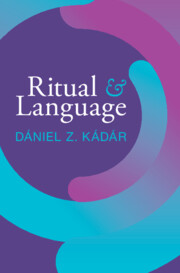Crossref Citations
This Book has been
cited by the following publications. This list is generated based on data provided by Crossref.
Kádár, Dániel Z.
and
Fukushima, Saeko
2018.
The meta-conventionalisation and moral order of e-practices.
Internet Pragmatics,
Vol. 1,
Issue. 2,
p.
352.
Kádár, Dániel Z.
and
Fukushima, Saeko
2020.
(Im)politeness and Moral Order in Online Interactions.
Vol. 107,
Issue. ,
p.
149.
2021.
Cross-Cultural Pragmatics.
p.
15.
2021.
Cross-Cultural Pragmatics.
p.
29.
2021.
Cross-Cultural Pragmatics.
p.
249.
2021.
Cross-Cultural Pragmatics.
p.
1.
House, Juliane
and
Kádár, Dániel Z.
2021.
Cross-Cultural Pragmatics.
2021.
Cross-Cultural Pragmatics.
p.
71.
2021.
Cross-Cultural Pragmatics.
p.
134.
2021.
Cross-Cultural Pragmatics.
p.
245.
2021.
Cross-Cultural Pragmatics.
p.
57.
2021.
Cross-Cultural Pragmatics.
p.
43.
Wang, Keyuan
Wang, Zepeng
and
Mao, Yansheng
2024.
Hospitality and ritual: A discursive study of toasting in Chinese dining contexts.
Discourse Studies,
Jabbarli, Ramin
2024.
Making and transcending boundaries: the effect of ritual on nationalism.
Theory and Society,
Vol. 53,
Issue. 6,
p.
1415.
Ai, Qi
Mao, Yansheng
and
Huang, Huimin
2025.
Self-mourning in the digital age: Insights from Douban's Online Graveyard in Chinese.
Computers in Human Behavior,
Vol. 168,
Issue. ,
p.
108666.
Wang, Yihang
Mao, Yansheng
and
Wei, Shuang
2025.
A clumsy messenger with a flippant tongue: Reported speech by Chinese males between their mothers and wives.
Discourse & Society,
Vol. 36,
Issue. 1,
p.
98.
House, Juliane
Kádár, Dániel Z.
and
Xia, Zongfeng
2025.
Offering food and alcohol in Chinese and English: a contrastive pragmatic perspective.
Journal of Politeness Research,
Vol. 21,
Issue. 1,
p.
95.



